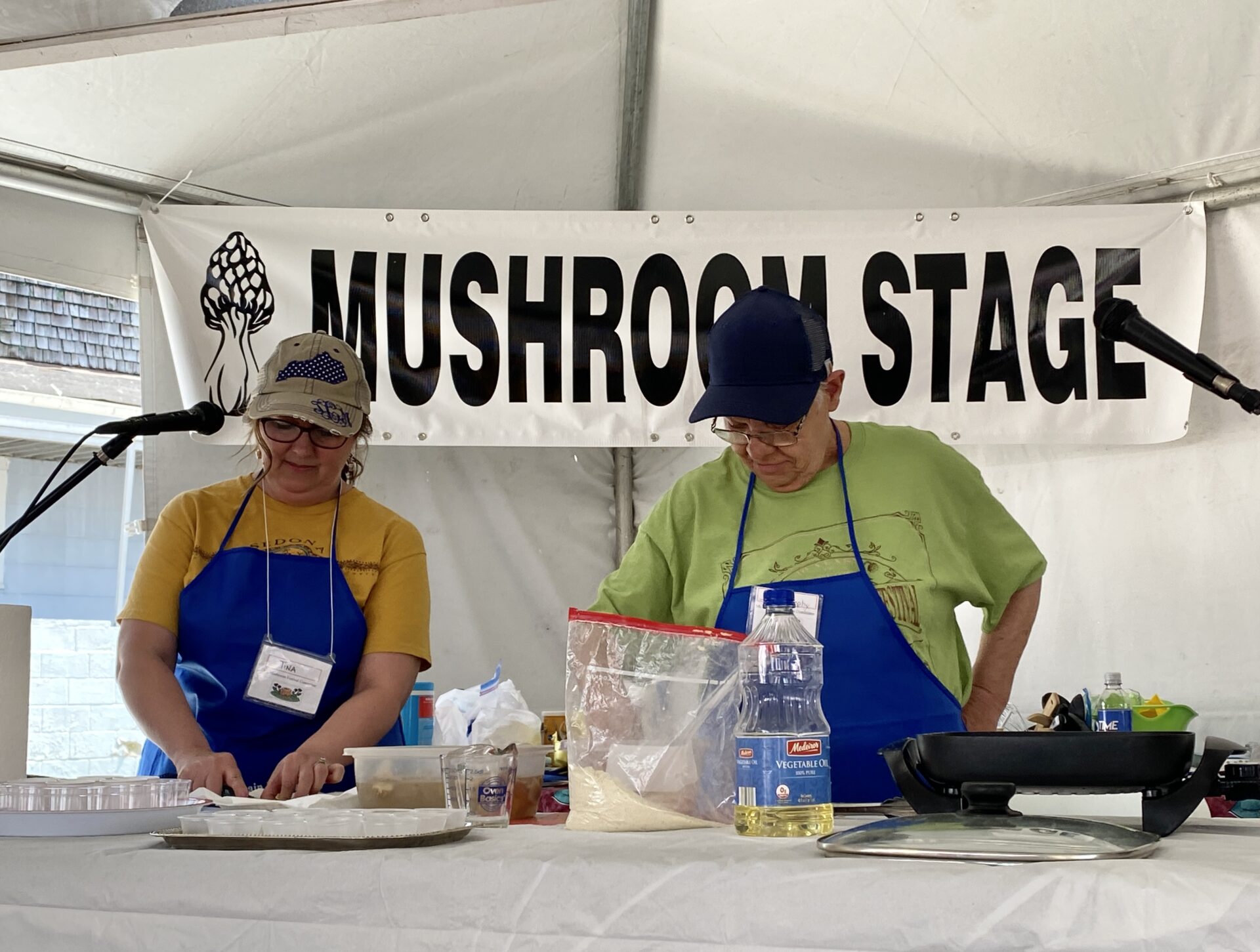Appalachians love to compete. Whether it’s recreational league softball, a turkey calling contest or workplace chili cook offs, Mountain folks are in it to win it.
But there’s more to competing than just winning or losing.
In this show, we’ll meet competitors who are also keepers of beloved Appalachian traditions.
In This Episode:
- Musgrave Reports From The Mountain Mushroom Festival
- An Accident Of Appalachian History Led To A New Style of Pizza
- Brave Kids Continue Eisteddfod Tradition
- Playing To Eat And Eating To Play
- A Southern Ohio Town Honors The Appalachian Connection To The NFL
Musgrave Reports From The Mountain Mushroom Festival
Credit: Nicole Musgrave/West Virginia Public Broadcasting
Each spring, people take to the woods in search of morels, a seasonal favorite throughout Appalachia, and they inspire all kinds of competition.
Folkways Reporter Nicole Musgrave went to the Mountain Mushroom Festival in Irvine, Kentucky and found people looking for the most mushrooms — the biggest mushrooms — and the tastiest way to eat mushrooms.
An Accident Of Appalachian History Led To A New Style of Pizza
Credit: Zack Harold/West Virginia Public Broadcasting
Ever live in a place where there’s a competition between two restaurants, and people sort of decide which team they’re on?
Folkways Reporter Zack Harold says people in Wheeling, West Virginia are passionate about their pizza. That’s because an accident of history led to a new style and who’s better/who’s best contest that’s been going on for decades.
Brave Kids Continue Eisteddfod Tradition
Eisteddfod is probably not a word that rolls off the tongue of everyone in Appalachia. But in Wales, it refers to a traditional music competition that goes back nearly 1,000 years. Immigrants brought the tradition to southern Ohio, where it has endured for generations. Thanks in part to some brave kids.
Folkways Reporter Capri Cafaro has this story.
Playing To Eat And Eating To Play
Credit: Clara Haizlett/West Virginia Public Broadcasting
Another competitive tradition that’s endured for generations is weekly board game night. Whether with family or friends, we play Monopoly, Settlers of Catan, and sometimes even Candyland.
Folkways Reporter Clara Haizlett reported on a board game that matches West Virginia’s favorite cryptids with some of its favorite places to eat.
A Southern Ohio Town Honors The Appalachian Connection To The NFL
Appalachia’s connection to professional football has always been a little loose. Lots of pro players have come out of Appalachia, but there’s really only one Appalachian NFL team — the Pittsburgh Steelers, or two if you count the Atlanta Falcons, as a listener recently argued we should.
It turns out, at least one other professional team has Appalachian DNA — the Detroit Lions. That franchise began as the Portsmouth Spartans in Portsmouth, Ohio, just across the river from Kentucky.
Sports fan and WVPB Reporter Randy Yohe has this story.
——
What about you? What kind of competitions are happening in your neck of the woods? Maybe you know about a sport or contest we’ve never heard about. Or someone there makes pizza like nobody else. Tell us about it. Email us at InsideAppalachia@wvpublic.org.
Our theme music is by Matt Jackfert. Other music this week was provided by Charlie McCoy, The Steel Drivers, Larry Groce, David Mayfield, and Dean Martin.
Bill Lynch is our producer. Our executive producer is Eric Douglas. Kelley Libby is our editor. Our audio mixer is Patrick Stephens. Zander Aloi also helped produce this episode.
You can find us on Instagram, Threads and Twitter @InAppalachia. Or here on Facebook.
Sign-up for the Inside Appalachia Newsletter!
Inside Appalachia is a production of West Virginia Public Broadcasting.
